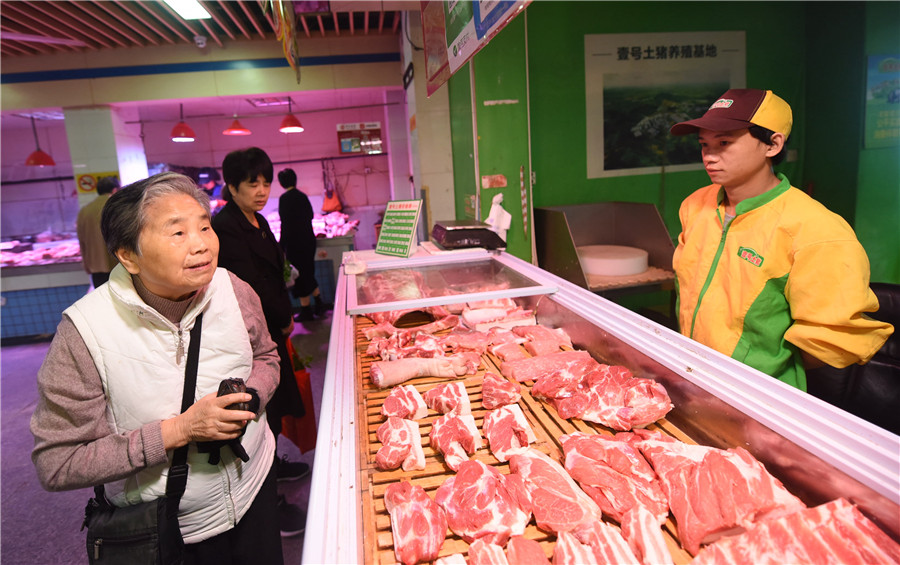Tight pork supply pushes up inflation, but relief on horizon


Analysts predict decline in CPI by second half of next year after jump in October
Though tight pork supply may continue to push up China's consumer inflation level in the next few months, it is unlikely to induce price increases in a wide range of goods or sway the country's policy stance of growth stabilization, analysts said.
The consumer price index, a main gauge of inflation, may begin to fall from the second quarter or the second half of next year, they said after the CPI hit 3.8 percent year-on-year in October, the highest this year and up from 3 percent the previous month.
Shen Yun, a senior statistician with the National Bureau of Statistics, said on Saturday that nearly two-thirds of last month's year-on-year CPI growth was attributed to rising pork prices, which were up 101.3 percent year-on-year.
Core inflation, which excludes food and energy prices and is known as a better reflection of the overall supply-and-demand relationship of an economy, was 1.5 percent last month, unchanged from September, the NBS said.
Yang Yewei, chief macroeconomic analyst with Chongqing-based Southwest Securities, said consumer inflation continued to be driven by pork prices last month, while nonfood price inflation and demand in the real economy remained lackluster.
The rise in pork prices, partly a result of African swine fever, had delivered very limited inflationary pressure on other goods because pork prices squeezed out consumption on other goods amid lukewarm economic conditions, Yang said.
"CPI may continue to be pushed up solely by pork in the next few months, making it unnecessary for monetary policy to respond by tightening up," Yang said, adding that monetary policy is expected to keep making the stabilization of economic growth the priority.
Consumer inflation may peak in January, before the Spring Festival, when pork demand rises, said Hua Changchun, chief economist with Guotai Junan Securities.
From the second quarter, the pressure from pork price increases may ease, and the window may open for the rolling out of further growth stabilization measures, especially monetary and fiscal policies to reduce costs faced by manufacturers, Hua said at the annual conference of the China International Finance Society on Friday.
The country has launched multiple measures to stabilize pork production and ramp up pork imports. The Ministry of Commerce said on Wednesday that wholesale pork prices were 52.3 yuan ($7.50) per kilogram nationwide on average in the first week of November, with week-on-week price growth down by 8.9 percentage points to 2.1 percent.
On a month-on-month basis, the CPI was up 0.9 percent last month, the same as in September, mostly due to rising pork prices, the NBS said.
The producer price index, which gauges factory gate prices, dropped by 1.6 percent year-on-year in October but was up 0.1 percent month-on-month.




































